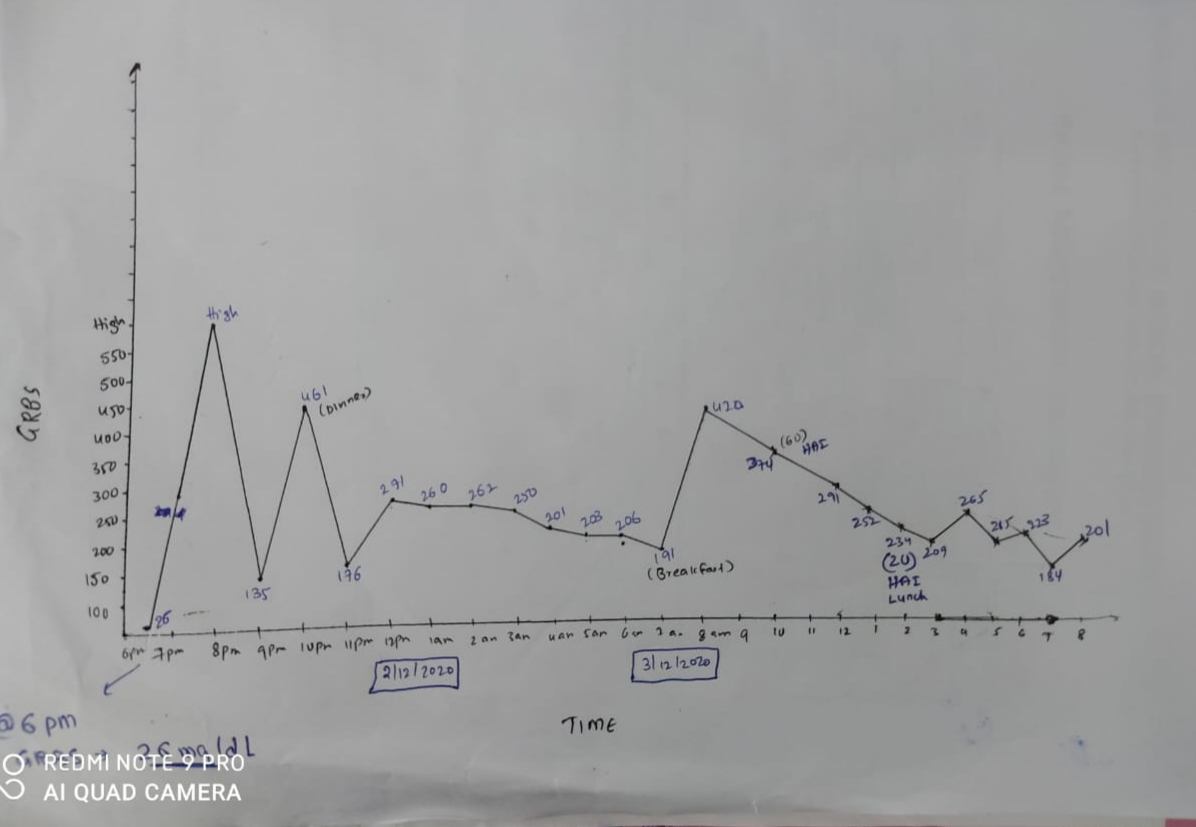bimonthly assessment january
26 year old woman with complaints of altered sensorium somce 1 day,headache since 8 days,fever and vomitings since 4 days
Case presentation links:
https://youtu.be/CSCxw2zp7Oc
a.What is the problem representation of this patient and what is the anatomical localization for her current problem based on the clinical findings?
A. Problem presentation of this patient :
. Altered sensorium with irrevelant talk since 1 day
. Vomitings since one week
. Fever since one week
. Generalized weaknesses with decreased appetite since one month
. Neck pain with headache since one month which is worsened past 8 to 15 days.
Anatomical localization: lesion may be in frontal lobe.
b) What is the etiology of the current problem and how would you as a member of the treating team arrive at a diagnosis? Please chart out the sequence of events timeline between the manifestations of each of her problems and current outcomes.
https://www.ipinnovative.com/journals/ijirm/article-full-text/8585
c) What is the efficacy of each of the drugs listed in her prior treatment plan that she was following since last two years before she stopped it two weeks back?
For example:
Why was she given bisphosphonates?
What is the efficacy of using primary bisphosphonate prophylaxis for patients started on corticosteroids?
-
A.hcq
https://pubmed.ncbi.nlm.nih.gov/9682041/
Cholecalciferol
https://pubmed.ncbi.nlm.nih.gov/8782129/
fluperitine and diclofenac for pain
d) Please share any reports around similar patients with SLE and TB meningitis?
A.https://www.researchgate.net/publication/273691193_Tuberculous_Meningitis_in_a_Patient_with_Systemic_Lupus_Erythematosus
Any reports of normal csf leukocyte count and normal csf protein in meningitis?
https://www.sciencedirect.com/science/article/pii/S1201971213002142
What could be the probable cause for a normal csf leukocyte count in a patient with chronic meningitis?
e) What is the sensitivity and specificity of ANA in the diagnosis of SLE?
A.https://pubmed.ncbi.nlm.nih.gov/8678710/#:~:text=The%20estimated%20sensitivity%20and%20specificity,11%25%20for%20other%20rheumatic%20diseases.
What was the research question in the above thesis presentation?
The research question
1)will salt restricted diet decrease blood pressure?
2)can 24hr urinary sodium test reflect the amount of sodium consumed by an individual
What was the researcher's hypothesis?
Hypothesis is that, salt restriction doesn't effect blood pressure in all the individuals in the same way, and salt resistant individuals don't benefit from a restricted diet as much as a salt sensitive individual.
What is the current available evidence for the utility of monitoring salt excretion in the hypertensive population
The 24hr urinary sodium is a reflection of dietary sodium, and has better results than dietary recall method
Daily salt intake based on 24-hour urinary sodium excretion (assuming that all sodium ingested was in the form of sodium chloride) with a formula: figure 2 shows a practical method to estimate salt or sodium intake.
Figure 2: Calculation for estimation of salt or sodium intake
Na (mg/day) = Na (mmol/day) x 23; NaCl = Na (g/day) x 100/ 39,3
1 gram salt (NaCl) = 393,4 mg Na = 17,1 mmol Na
What was the research question in the above thesis presentation?
The research question in the above thesis is whether magnesium plays a role in complications of diabetes mellitus
What was the researcher's hypothesis?
The researcher's hypothesis is that hypomagnesemia causes complications of dm2 irrespective of other confounding factors like age,duration of diabetes.
What is the current available evidence for magnesium deficiency leading to poorer outcomes in patients with diabetes?
3)Please critically appraise the full text article linked below:
What is the efficacy of aspirin in stroke in your assessment of the evidence provided in the article. Please go through the RCT CASP checklist here https://casp-uk.net/casp-tools-checklists/ and answer the questions mentioned in the checklist in relation to your article.
Clinical appraisal of the article:
1)The study answered the research question
being the use of asprin for prevention of stroke progression.
it was foccused in terms of intervention given and outcome measured
2)the method for randomisation was appropriate eliminating systematic bias and allocation sequence concealed from investigators and participants
3)all the participants included in the study were accounted for, including rhe two parcels whixh were accidentally opened.
4)the participants and the investigators were blind methodically
5)the study groups were similar
6)apart from the experimentation, the hospital care given is not documented
7)there were dropouts in the study, study medication was interrupted in few due to suspected side effects,
the p value was not mentioned
8)the cI interval 95%0.6-1.45
9)the treatment effect wasn't much,
10)the outcomes are benefial to my population in prescribing anticoagulants
dual vs single antiplatelet use and longer duration of followup could have been made .
4) Please mention your individual learning experiences from this month.
A. 1.Ig A nephropathy
2. Aki patients seen and studied .
3.DKA patient got admitted and learnt about the cycle and treatment.
4.got posted in psychiatry
5.learnt how to take history
6.Alcohol addictions
7.psychopharmcology class was taken.
8.Substance misuse topic read
9.ADHD patient seen and learnt about treatment
10.viva was done on this topics .
5) a) What are the possible reasons for the 36 year old man's hypertension and CAD described in the link below since three years?
The possible reasons for hypertension and cad in the given history could be
1.Alcohol
2.smoking
https://www.ncbi.nlm.nih.gov/pmc/articles/PMC6541867/
b) Please describe the ECG changes and correlate them with the patient's current diagnosis.
The ecg suggests:
1st ecg-irregularly irregular rythmn,normal axis,
Intermittent broad qrs complexes ? ventricular escape rythmn,?idioventricular rythmn
Remaining ecg-poor r wave progression with regular rythmn
c) Share an RCT that provides evidence for the efficacy of primary PTCA in acute myocardial infarction over medical management. Describe the efficacy in a PICO format.



Comments
Post a Comment